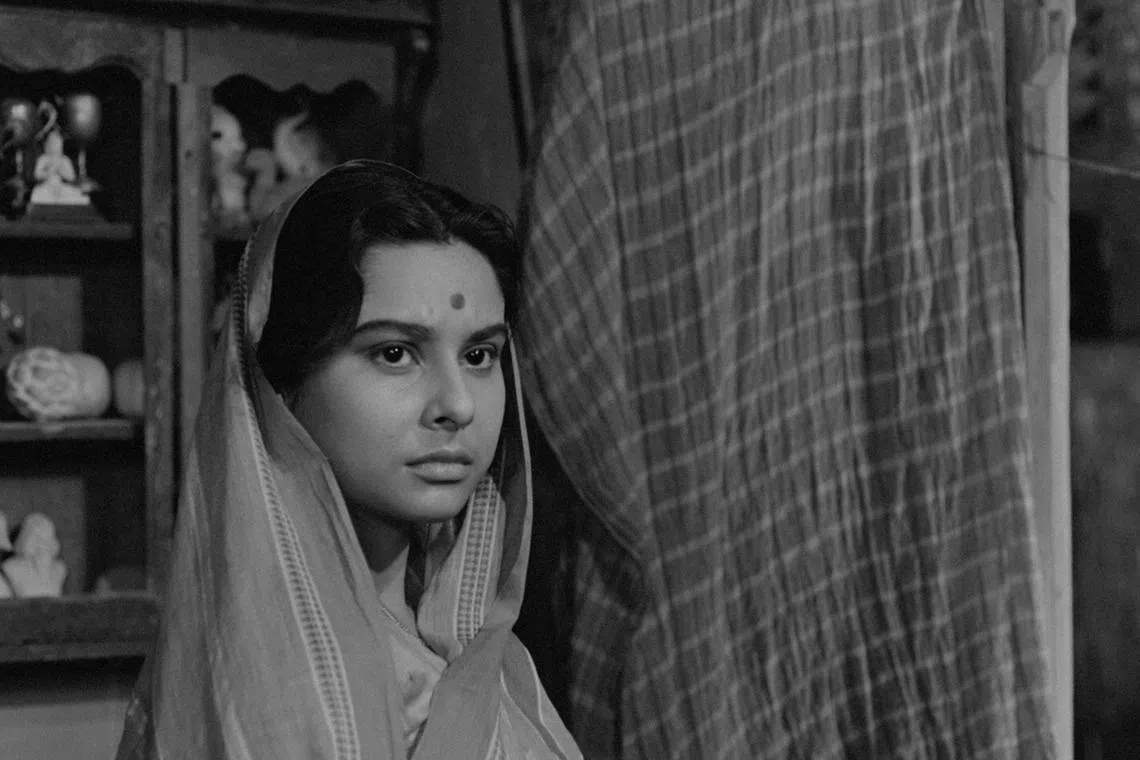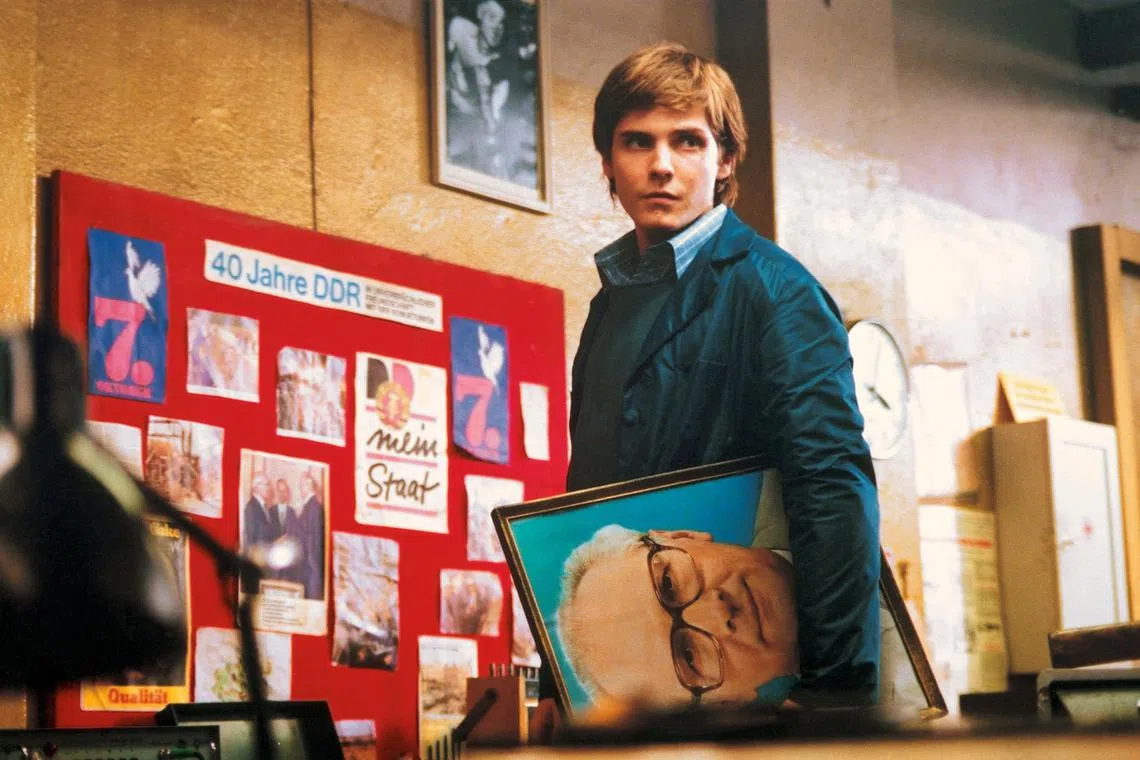Film Picks: Screen Icons: Madhabi Mukherjee, Good Bye, Lenin!, Evil Does Not Exist
Sign up now: Get ST's newsletters delivered to your inbox

Indian actress Madhabi Mukherjee in the film Mahanagar (1963).
PHOTO: FILMS SANS FRONTIERES
Screen Icons: Madhabi Mukherjee
ArtScience Cinema’s Screen Icons series casts the spotlight this time on Indian actress Madhabi Mukherjee, one of the most celebrated figures in Bengali cinema. She celebrated her 82nd birthday in February.
Between 1963 and 1965, she helped create an internationally acclaimed body of work with film-maker Satyajit Ray, a giant of world cinema.
One of the three Ray-Mukherjee collaborations featured at ArtScience Cinema is Mahanagar (1963, PG, 135 minutes). She plays Arati, the uneducated wife of a bank clerk who takes a job as a door-to-door saleswoman because of growing financial pressures. Reticent at first, especially when faced with disapproval from her father-in-law, the former housewife hits her stride.
She takes pride in her accomplishments and the money she brings home. But things do not go smoothly, and Arati soon finds herself under new pressures at work and at home.
Ray won the Silver Bear for Best Director at the 1964 Berlin International Film Festival and Mahanagar was India’s submission to the Best Foreign Language Film category at the 1964 Academy Awards.
The Guardian in its review says: “Arati’s growing confidence as the family’s only breadwinner, accompanied by doubts about disrupting family roles, is handled with great subtlety and insight.”
Where: ArtScience Cinema, Level 4 ArtScience Museum, 6 Bayfront Avenue str.sg/evQN
MRT: Bayfront
When: July 13 to Aug 3, various timings
Admission: $13 for standard adult ticket price
Info:
Golden Mile Revisits: Good Bye, Lenin!

Daniel Bruhl in Good Bye, Lenin!, which is screening at The Projector in July.
PHOTO: THE PROJECTOR
The Projector’s Golden Mile Revisits series brings back beloved works from the recent past. Presented in collaboration with Goethe-Institut Singapore, this tragicomic tale of a life-saving con job won Best Film and Best Actor (for Daniel Bruhl) at the 2003 European Film Awards.
Good Bye, Lenin! (2003, M18, 121 minutes) stars Bruhl as Alex, a citizen of East Germany whose mother Christiane (Katrin Sass) falls into a coma just before the reunification of the country and who awakens months after the fall of the Berlin Wall. Worried that the shock of the new might send the committed socialist back into a health crisis, Alex creates the illusion that the German Democratic Republic still exists in its old form, a ruse that includes faking food, furniture and clothing.
Where: 05-00 Golden Mile Tower, 6001 Beach Road str.sg/oSWmb
MRT: Nicoll Highway
When: July 5, 17 and 25, 8pm
Admission: $6
Info:
Evil Does Not Exist (PG)

Actor Hitoshi Omika in Evil Does Not Exist, by writer-director Ryusuke Hamaguchi.
PHOTO: THE PROJECTOR
106 minutes, now showing at The Projector
4 stars
Japanese writer-director Ryusuke Hamaguchi helms this 2023 Venice Film Festival Grand Jury Prize winner, which also won best film at the London Film Festival and Asian Film Awards.
His latest triumph comes on the heels of his twin global hits, the 2022 Academy Awards Best International Feature Film winner Drive My Car and 2021 Berlin Film Festival’s Silver Bear recipient Wheel Of Fortune And Fantasy.
Evil Does Not Exist, revolving around taciturn widower and local handyman Takumi (Hitoshi Omika), looks to be another unhurried humanist drama. A Japanese mountain village on the outskirts of Tokyo is upset by a proposed glamping site for city tourists. The centrepiece is a town hall meeting, one of those absorbing lengthy exchanges that are Hamaguchi’s hallmark.
It is the Tokyo developer’s cynical public relations exercise to sell the close-knit community on the benefits of tourism. No yokels, the residents – these non-professional actors have such great faces – angrily pelt concerns of wildfires and groundwater contamination.
Hamaguchi is a storyteller too abstruse for a didactic conflict between rural and urban, or nature versus capitalism. With masterful control of tone and thought, the pastoral folktale bears out its sinister undercurrent and swells into an environmental thriller altogether more mysterious, apocalyptic and terrifying.



